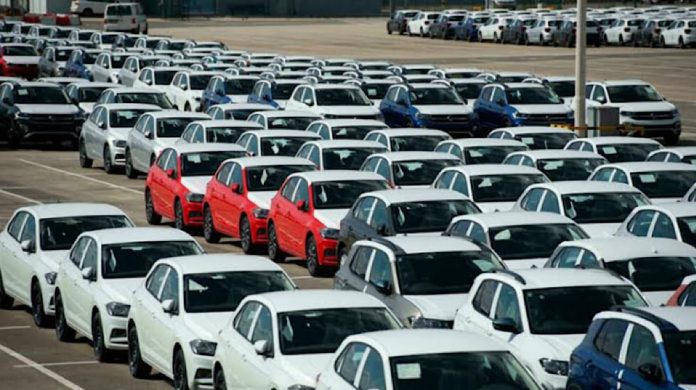The import of used cars has seen an astounding 684% increase in the first half of the current fiscal year compared to the same period last year.
Between July and December 2023, a total of more than 16,500 used cars were brought into the country. This is a significant surge from the approximately 2,100 used cars that were imported throughout the entire fiscal year of 2022-23.
Diving deeper into the categories of imported vehicles, there was a substantial rise in the import of smaller, economy and compact models, accounting for almost 9,900 units. Alongside these, the import of commercial vehicles, SUVs, vans, and luxury cars also increased, totaling nearly 6,600 units.
Abdul Rehman Aizaz, Chairman of the Pakistan Association of Automotive Parts & Accessories Manufacturers (PAAPAM), attributed this remarkable increase in used car imports to the removal of regulatory duties on used cars up to 1800cc in the federal budget for the fiscal year 2023-24.
Mr. Aizaz highlighted that while this policy change was intended to rejuvenate the automotive sector, it has had a detrimental impact on the local auto industry. Local vendors are facing an estimated loss of a staggering PKR 36 billion and are at risk of having to shut down their businesses.
He pointed out the irony that the removal of the 100% regulatory duty benefits mainly importers and companies dealing in Completely Built Units (CBUs), without providing any relief to the struggling local industry, which is already grappling with significant demand-supply challenges.
Mr. Aizaz emphasized that the shift from locally produced cars to imported used vehicles is leading to substantial revenue losses for the government. The taxes and duties that would have been generated from locally produced cars are now being missed out on.
He explained that under the previous policy, the government received a fixed amount of dollars in taxes regardless of the original market prices of cars. In contrast, the current duties and taxes are based on ex-factory prices, resulting in potential revenue shortfalls.
The surge in used car imports presents both challenges and opportunities for the automotive sector and policymakers alike. There is a pressing need for a careful reassessment of policies to ensure sustainable growth and support for local industries.


